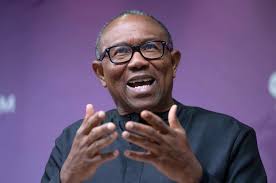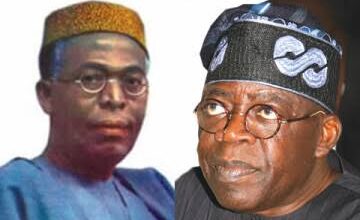OBIDIENTS: A dangerous cycle of recklessness

By Seun Kolade
Nobel Laureate, Professor Wole Soyinka, recently intervened in the wake of the Channels TV’s interview given by Labour Party’s Vice-Presidential Candidate, Mr Datti Baba-Ahmed. Soyinka decried Baba-Ahmed’s “menacing’ threat and “blackmail” of the nation’s judiciary. He also deplored what he described as the “fascistic” tendencies of the “Obidient” movement. It was not, he said, “what we struggled for”, obviously referring to his more than six decades of activism. That includes the memorable occasion in 1965 when he took hostage a radio station at gun point, in defiance of what he considered to a fascist regime in Western Nigeria. He was 31 years old at the time. In the intervening years and decades, Soyinka would spend time in solitary confinement because of his strident opposition to the Biafra war and his campaign for peace. He was also a leading figure of the NADECO struggle in the 1990s, for which he was on Abacha’s hit list and was forced to exile. Surely, a man of Soyinka’s stature and standing has the moral authority to intervene the way he did, in a courageous stand against the encroaching tides of fascism.
Except, of course, that many “Obidients” would argue that they are, in fact, Soyinka’s authentic heirs. As far as they are concerned, they are taking a last stand against a Nigerian state that is presumably assuming the profile of a fascist state where the law is used selectively to protect a corrupt elite and suppress the masses of the people. For good measure, they would argue that they draw inspiration from Soyinka’s hostage playbook as a necessary intervention in a situation where the law was no longer applied fairly and consistently for public good, but protect the interests of a few. Soyinka did not wait for the court to act, after all, in 1965. He was convinced something had to be done, urgently, in the interest of public good.
On a fundamental level, I believe this is the argument Baba-Ahmed was making. He was saying in effect that he and the Labour Party are in fact the victim, rather than instigators, of official recklessness. The INEC chair, he argued, had acted recklessly and illegally with his clandestine issuance of a certificate of return to former Governor Tinubu. INEC had acted in contravention of the electoral act by failing to upload and collate the results live via IReV. The election had been rigged, and Labour voters violently disenfranchised in many places, notably in Lagos. Did the authorities expect these citizens to play the fool and play along with a fraudulent and allegedly unconstitutional process? Baba-Ahmed says he is not prepared to do that. He and his supporters have chosen to fight fire for fire.
The problem with this zero-sum play is that it induces a vicious cycle of recklessness in the civic space, a cycle which naturally progresses to a state of anarchy and the enactment of naked violence in the streets. This plays right into the hand of a corrupt establishment, who will be all too happy to deploy the coercive instruments of state power in the ensuing melee. This is not the only problem, though. As we have learnt from the Reign of Terror during the French Revolution, any popular movement that abandons reason as the core instrument of campaign and mobilisation will self-destruct sooner than later. Threats, blackmail and intimidation can produce appearances of short-term results while precipitating long-term damages. You cannot threaten your way to transformative change. The fire of intimidation is a conflagration that consumes all, including its purveyors. The ‘Obidient” movement needs to revise its strategy. There is certainly something to be said for the emotional energy of youth who have had enough and are fired up to take their country back. However, anger itself is not a sustainable instrument of effective mass mobilisation, abuse is hardly an effective strategy for persuasion, and groupthink can only reach so far.
Let me now conclude by returning to an earlier point. The youth of Nigeria, broadly represented by the members of the END SARS movement, are not the instigators but victims of state-led recklessness and violence. The blood of peaceful END SARS protesters is an indelible stain of the conscience of this nation. The Nigerian authorities need to think carefully about their approach and rhetoric. The youth are angry because of perceived injustices and fraud allegedly unleashed by agents of the state. Those allegations must be treated with utmost seriousness and urgency in a fair and transparent judicial process. Unless and until the state does this, it has no moral authority to condemn dissenters as treasonable, as the minister of information recently did, in response to opposition leaders declaring the installation of the president elect as unconstitutional. Without this credibility, underpinned by clear and consistent adherence to the rule of law, the state will have breached the social contract and effectively lose its legitimacy. From my vantage point, it is the Nigerian government that has unleashed a vicious cycle of recklessness, and it is now the duty of the state to stop this destructive cycle. Those who make the rules must play by the rules.




